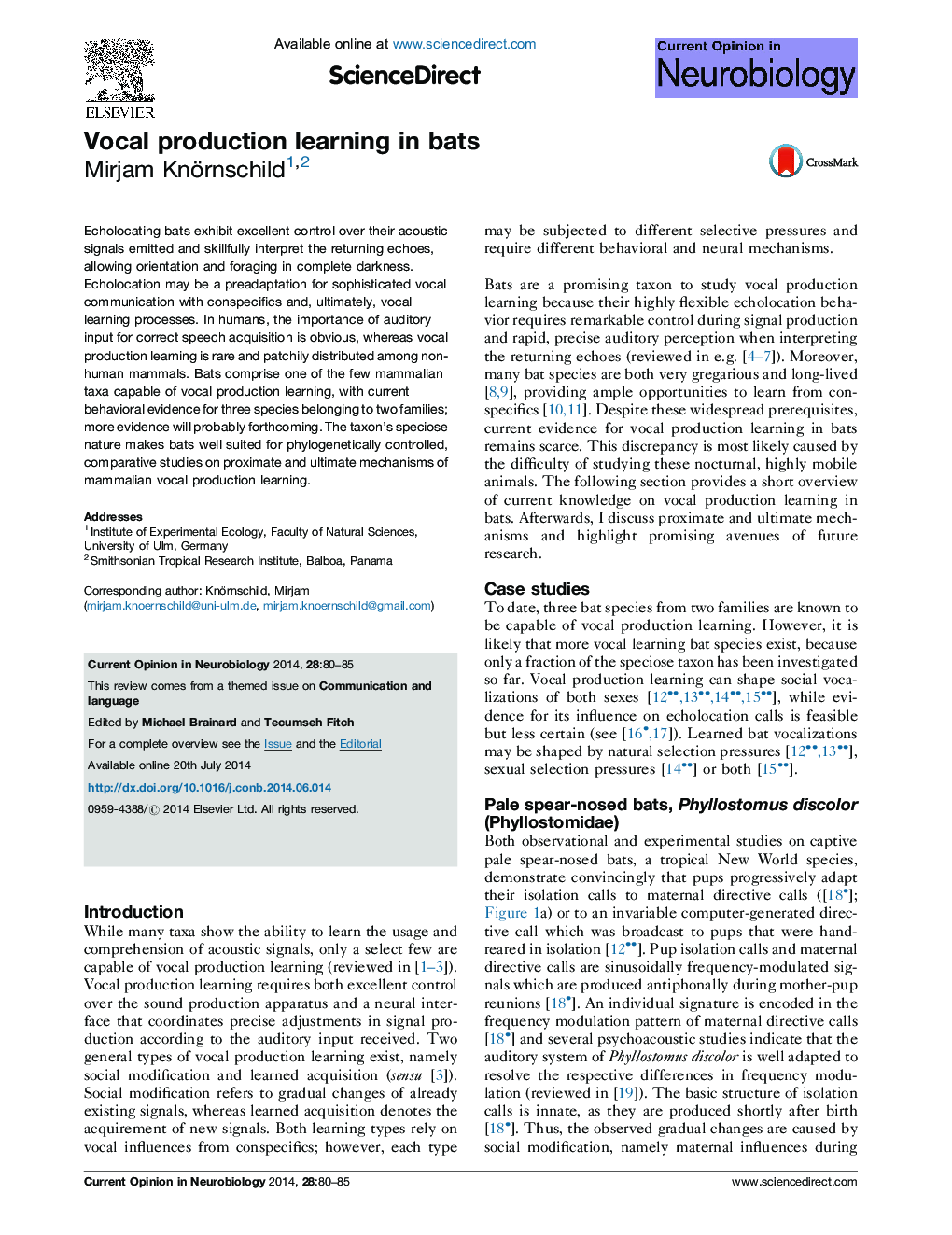| Article ID | Journal | Published Year | Pages | File Type |
|---|---|---|---|---|
| 6266666 | Current Opinion in Neurobiology | 2014 | 6 Pages |
â¢Bat echolocation is a preadaptation for sophisticated vocal communication.â¢Thus, bats are a highly promising taxon for studies on vocal production learning.â¢There is evidence for respiratory and phonatory learning but not for filter learning.â¢Comparative studies on mammalian vocal production learning are especially rewarding.â¢The taxon's speciose nature makes phylogenetically controlled studies possible.
Echolocating bats exhibit excellent control over their acoustic signals emitted and skillfully interpret the returning echoes, allowing orientation and foraging in complete darkness. Echolocation may be a preadaptation for sophisticated vocal communication with conspecifics and, ultimately, vocal learning processes. In humans, the importance of auditory input for correct speech acquisition is obvious, whereas vocal production learning is rare and patchily distributed among non-human mammals. Bats comprise one of the few mammalian taxa capable of vocal production learning, with current behavioral evidence for three species belonging to two families; more evidence will probably forthcoming. The taxon's speciose nature makes bats well suited for phylogenetically controlled, comparative studies on proximate and ultimate mechanisms of mammalian vocal production learning.
Graphical abstractDownload high-res image (218KB)Download full-size image
